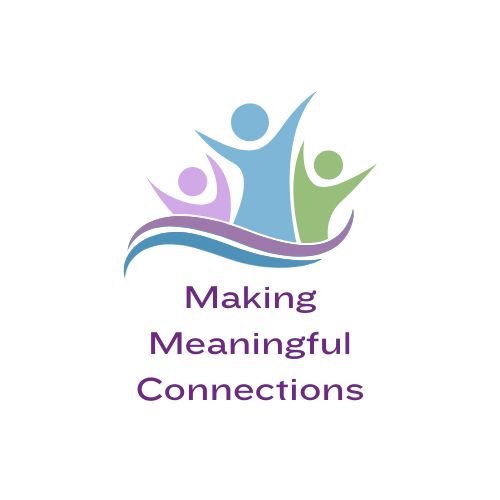
by Barb Abramson | Oct 19, 2014
My father had deep brown eyes that twinkled as he regaled everyone in earshot with his punny jokes while we all groaned and rolled our eyes.
But when dementia set in, and eventually Alzheimer’s, I would have listened to his jokes all day without one groan just to see the light in his eyes instead of the fear that replaced them.
I didn’t notice the changes at first. The forgetfulness and the inability to focus. But as the disease continued to creep into his body, the light began to dim in his eyes.
As my father became aware of what was happening, it scared him to know he was losing his ability to function in the same capacity he always had. His eyes would widen and he would hesitate, then shrink back into himself.
I remember going to his house one afternoon about 2:00 pm and found him and mom still in their pajamas, both overwhelmed but not sure why. Then there was the day when I called and got a fast busy tone on the line. I called their cell phone and it wasn’t working either. Concerned, I drove over and found them sitting in the dark. Confused. Scared.
In my dad’s office were a pile of bills. A pile of unpaid bills, including collection notices. Alarms bells were going off in my head. This was not my dad!
Role reversal is hard – on both the parent and the child. It didn’t matter that I’m a grown adult. I want my dad to be my dad.
For me, the heartache was that this was my parent – my dad – the man I leaned on and depended on while I was growing up. My dad was strong and smart and always knew what to do. He was my “go to guy.”
I remember the moment when someone asked him a question and he just pointed to me, indicating that I am in charge. On the outside, I smiled and answered. Inside I cried. Yet at the same time, I felt honored that I was given a gift – to be able to give back and care for the man that cared for me.
I knew it was time to have a conversation with him about what was happening. It was painful for both of us and I learned so much from talking with him that day, and over time.
People with dementia are afraid. They know things aren’t right. They are afraid to admit it and dread anyone else finding out. So having that conversation was devastating for him, but what he was able to share was so powerful in helping me to help both of us.
There were five things he told me that may help you and someone you love too.
“I’m afraid of what is happening.”
If you find what is happening to a loved one is scary for you, take a step back and look at it through their eyes. Dad was aware that things had changed and it really frightened him. He didn’t want to admit it and was afraid to let someone know, and he was afraid of the reaction his friends and family would have if they found out. He talked to me about not feeling whole and in control. He felt his mind was slipping and not only was he losing his mind, he was losing himself.
“Please don’t be mad if I don’t know who you are.”
Dad would see someone heading his way and the panicked look on his face told me everything. He knew he was suppose to recognize them, but didn’t.
“I am so confused. About everything!”
Simple things like the day, date and time eluded him. Activities he used to be so good at seemed tedious. A man who lived by the calendar suddenly felt lost and didn’t know what he was supposed to be doing or when. Tasks that are part of every day living such as taking out the trash, opening mail and paying bills weren’t on his radar any more. Leftovers piled up and rotted in the refrigerator, unnoticed.
“I don’t know that I’m repeating things.”
Dementia and Alzheimer’s affects short-term memory. My dad didn’t know he was saying something repeatedly. “You just told me that” is painful for both of you because it makes two people feel bad. You and them. You are reminding them they are failing at something, and you are grieving for the loss of this person’s capacity.
I’m too overwhelmed to manage self care.”
My dad had no awareness that his clothes didn’t match or he hadn’t shaved or brushed his teeth. His hair was a mess and he wore slippers all the time because they felt good. Once, my mom was in the hospital and my son picked my dad up to bring him to see her. He was wearing his clothes over his pajamas! I also know he often slept in his clothes.
I learned compassion as I cared for my dad. I learned to hold his hand and let him repeat himself and act like it was the first time he told me his story. I smiled at him and tried to make him feel safe. I whispered the names in his ear of others in the room so he would know who they were. His doctor helped me understand what was happening and I sought out support groups to help me with the fear, overwhelm and confusion I was feeling.
I feel really lucky that my dad still recognized me to the end, something that many loved ones don’t experience. Even though his memory slipped away, my memories of him, even through his struggles, comfort me.
And to this day, I have a penchant for punny jokes. While others may groan, to me, they are a hug from my dad.
Flickr Christos Tsoumplekas

by Barb Abramson | Oct 11, 2014 |
If you know me at all, you know I am incredibly proud of my son. And if you don’t know me yet, or very well, know that I am incredibly proud of my son. I am proud of the man he has become. He is thoughtful, insightful, generous, kind and a lot of other wonderful adjectives that makes a mom’s heart burst with love and oh yeah, pride.
He graduated high school, went to college out of state, and every year assumed more financial responsibility to make it easier on us as he got jobs. First his food, then his utilities, finally his rent and insurance on his car. He has since moved three times around the country, pursuing his career, and is now enrolled in grad school, paying his own way. And, he’s happily married, gifting us with a lovely daughter.
But let’s backtrack a bit. It wasn’t always smooth sailing. I’m talking about those pre-teen and teen years that most parents moan and groan about. The push back — really challenging — years when they think they know it all and parents are idiots. Yes, we had those too.
It is so easy to see the path our kids should follow. After all, we have been there, made the mistakes and gained the wisdom. So why shouldn’t they want our experience to show them the way?
Many of us parent the way we were raised. In some families, you didn’t question your parents at all. For the easy-going child, there was never a need to. But for some children, “I’m the Mom, that’s why” or “because I told you” are instant pushback and frustrating for everyone. The child pushes back and then the parent pushes harder, and thus begins a Ping-Pong game of sorts until there is a blow up. Mom and Dad might win and feels justified, yet privately aches for the unhappy child. The child feels angry, unheard and powerless.
I came across this quote from Dr. Shefali Tsabary clinical psychologist, author and speaker — “We are in charge of our children but not in control of them”
How do we balance that with wanting the best for our children and knowing our life experience can help them on their path?
A friend gave me the some parenting advice when my son was about 10, and it totally changed our relationship. Because it taught me how to empower him. It was the BEST advice I every received.
It starts with asking the child questions, listening, being present and creating a safe space for them. It is about connecting with them in a way that lets them know they have the power to spread their wings and fly.
Here are the 7 things I said that helped empower my son be the man he is today.
1. What are your thoughts?
This is a great way to draw them out and have a conversation. It is really important to stay on your side of the fence or line, and really give them a safe space to share, because if you advance too much or too quickly, they will retreat and the conversation will be over. They have to really feel safe in letting down their defenses and the trust that is built is amazingly strong.
2. How do you plan to handle that?
I admit, the first time I asked him this question, was a bit unnerving for both of us. I took a leap of faith by not “telling” him what to do, and suddenly, he had the opportunity to choose instead of just rebel. I could almost see the wheels turning as he figured things out. The question became easier for both of us rather quickly.
3. Have you considered your options?
Sometimes, even if they know what the choices are, it gives them the opportunity to have a sounding board to explore them with.
4. Do you want to talk about it?
You are giving them the opportunity to talk because they want to, and you’re putting the choice in their lap. Be prepared for a “No” and know that that’s OK. If they don’t want to talk right now, let it be. They will come to you when they are ready, because you left the door open for them to walk through, instead of locking them in a room with you demanding to talk about it right now.
5. I’m really proud that you are working through this.
Every child, no matter what age, wants to know their parent is proud of them. This boosters self-confidence and reinforces new skills of working things out for themselves, as well as making wise choices.
6. How did that feel?
This is a follow up to something they shared. It furthers the conversation and tells them you are interested in what they had to say and share. Really engaging with your kids makes them strong, independent and prepared to handle life. It is so easy for parents to give replies with “ok” and “umm hmmm” and not be fully present. The more you allow them to express themselves, the more they will share with you.
7. I’m here if you need me.
Some kids really want to figure things out on their own. But knowing they have a safety net (you) to catch them and guide them when they are ready is the biggest gift you can give your child to empower them. I still get calls asking my advice, thoughts and opinions, because I sought those out in him.
My son calls me nearly every day and our conversations range from “Just wanted to say hi” to “Can I ask you a question?” I treasure how close we are and enjoy the friendship that has developed over the years. I look forward to the day he is a parent and has the joy of empowering his own children.
Photo: Flickr Jc Olivera


